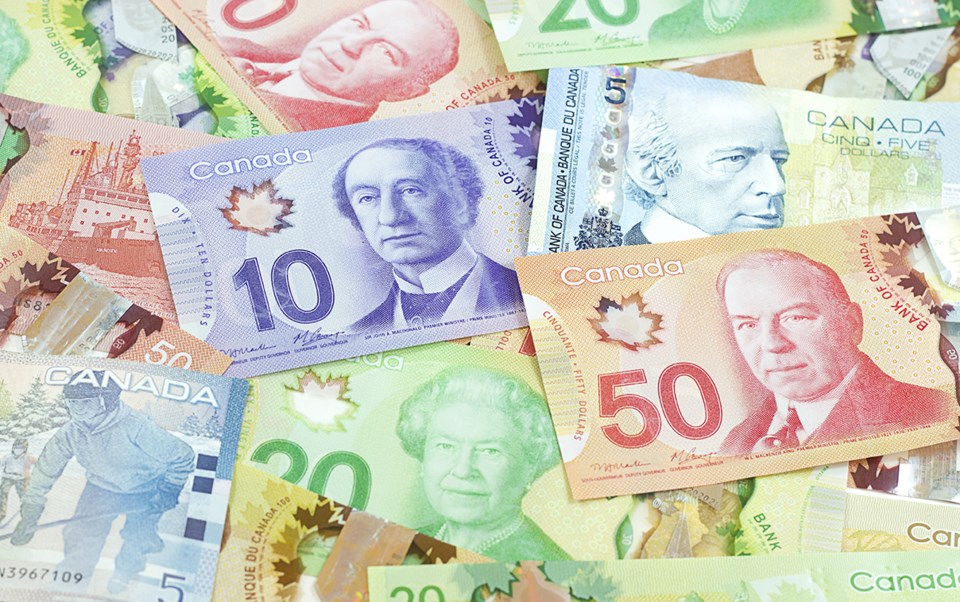The recent announcement that B.C.’s minimum wage will be hiked by 50 cents has reignited debate about whether pay increases can significantly damage local businesses, and whether such a small raise can help pay workers’ bills.
Some local employers say it will hurt them, while a UBC professor says this will not be the case.
Stuck in the middle are workers, for whom the new $11.35 per hour wage is welcome, but perhaps not always fully embraced.
“I’ll take anything I can get,” said Elfi Mitchell, a full-time worker at the Green Moustache.
“I think every little bit will help,” said Erin Lamondin, who works part-time at the same restaurant. “Fifty cents will definitely make a noticeable difference.”
The 50-cent increase, effective September, is part of the BC NDP’s promise to raise the minimum wage in increments until it hits $15 by 2021.
And while that 50-cent wage hike may be applauded by some, there appear to be many who believe that it’s not enough.
The Chief put out a call for comments via Facebook and email, and the responses appear to show an increase in the minimum wage is welcome, but falls far short of the necessary mark.
In a period of 23 hours, The Chief received 28 comments, 20 of which appeared to say the hike was too little, given the increasing cost of living.
Six people were against increasing the minimum wage, saying that it would hurt businesses or drive up inflation. The rest appeared to either display mixed feelings about the matter or said the wage increase is acceptable at 50 cents.
While this was far from a scientific survey, it does provide some perspective in how increasing pay can be a complicated issue for many people in Squamish.
On one hand, many residents feel unable to keep afloat of the rising costs of living in town but, on the other, businesses say that it will put pressure on their bottom line.
The chair of the Squamish Chamber of Commerce said in an emailed statement that cost increases can affect operations.
However, Christine Campbell adds that local businesses were able to plan for the 50-cent increase. Campbell said that increasing the minimum wage to $15 by 2021 is a significant increase and the chamber will be studying the matter.
“The Squamish Chamber will be surveying our members to have a more accurate understanding of the potential impact and attitudes towards the 2021 goal,” she said.
Vice-chair Rob Weys said in an interview that minimum wage and a living wage should be treated as separate things.
A living wage shouldn’t be a given, he said. Rather, it should be used to reward workers who prove themselves as valuable employees.
“I believe you need to earn – earn [that] over time,” he said. “Minimum wage is a starting wage, it’s not a living wage – there’s a big difference.”
He added he disagrees with the wage increase because he believes a 50-cent hike doesn’t help workers and hurts businesses.
But is a 50-cent increase enough to hurt employers?
This was one of the concerns that a business professor from the University of B.C. addressed with The Chief.
“The arguments are fairly predictable and the employer arguments haven’t changed since I started following this 55 years ago,” said Mark Thompson. “The academic evidence is overwhelming – that increases on the order of 10 per cent have little or no impact on employment or the labour market, generally.”
The increase announced by the government is about five per cent, Thompson said, so it shouldn’t endanger businesses. He noted that there was one study in Seattle that found evidence contrary to the 10 per cent rule, as upping that area’s minimum wage appeared to show a significant decrease in employment.
Thompson said this was a rare exception and should be examined further before anyone jumps to conclusions.
Another concern brought up by local business owners was that employers wind up paying more than just the extra 50 cents.
Because of pension, statutory holidays and employment insurance premiums, among other things, some business owners believe it will be costlier. Thompson said this is true – he estimated that if the BC NDP meet their target of increasing the minimum wage by about four dollars to hit $15 by 2021, it will cost employers one extra dollar. That means businesses will pay five dollars for a four-dollar wage increase.
It’s unclear if that extra cost is enough to put employers out of business, but Thompson pointed to a provincial study spearheaded by B.C. labour minister Dan Miller in the 1990s. Miller looked at whether bankruptcies increased each time the minimum wage was increased, and couldn’t find a link, said Thompson.
With regard to whether the increase in minimum wage is enough to accommodate the heightened living costs in Squamish, Thompson noted it would be a good idea to look at what would be considered the living wage for the area.
There isn’t a living wage calculated specifically for Squamish, but many believe that costs for living in town have become very similar to the Metro Vancouver area.
The living wage for Metro Vancouver, as calculated by the left-leaning think tank known as the Canadian Centre for Policy Alternatives, is $20.62 an hour.
That’s what’s needed for a family of four with two parents working full-time to pay for necessities, escape severe financial stress and participate in the social, civic and cultural lives of their communities, the centre wrote in its 2017 report.




